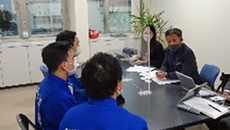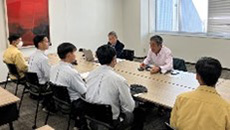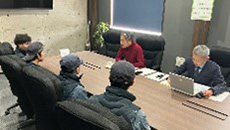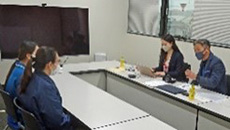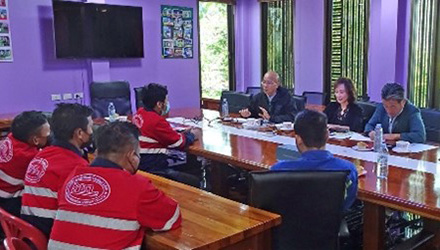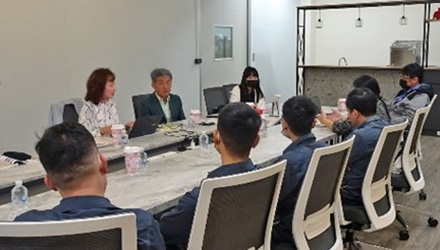Human Rights
Daifuku Group Human Rights Policy
Basic Stance on Human Rights
Since our founding, the Daifuku Group has faced the changing needs and challenges of society in the spirit of our company creed: Hini Arata. Our management philosophy, “Automation that Inspires,” expresses our resolve to use material handling-based technology to help foster a society in which people can live richer lives. Furthermore, we declare our commitment to respecting human rights in our management philosophy and Group Code of Conduct and strive to create an environment where each and every employee can maximize their potential. We recognize that respect for human rights is one of our most important responsibilities in terms of the sustainable growth of our business and organization, and we will fulfill this responsibility by minimizing any possible negative impact on human rights occurring through our business activities. This policy sets out the Group’s approach to human rights in the course of its business activities and applies to all officers and employees of the Group. We expect our business partners, including those in our supply chain, to understand this policy and put it into practice, and we will work together with them to promote respect for human rights. To achieve this, we have established an internal system in which the president and CEO of Daifuku Co., Ltd. bears responsibility for human rights, and we will carry out ongoing efforts.
Please refer to the following PDFs for details about the Daifuku Group Human Rights Policy (available in six languages).
Additionally, in order to encourage our major business partners to take steps toward promoting initiatives along with our Group, we ask that they submit written informed consent of our Human Rights Policy (submission rate: 94%).
Promotion System
The Sustainability Promotion Committee is an advisory body to the Board of Directors and is chaired by the Executive Vice President and COO with the heads of each business unit as members. Under its jurisdiction, the Human Rights and Supply Chain Subcommittee has been set up and comprises appointees from across multiple departments, including Procurement, Human Resources and General Affairs, Legal Affairs, and Sustainability Promotion, and it reports on crucial matters to the Board of Directors. In fiscal 2024, the Grievance Mechanism Introduction Project was launched under the jurisdiction of the Human Rights and Supply Chain Subcommittee. Through this project, we are promoting initiatives to optimize our complaint and consultation services. Additionally, the Sustainability Promotion Department, which serves as the administrative office, is in charge of day-to-day efforts to respect human rights and works in cooperation with related departments.
Please enlarge the screen to view
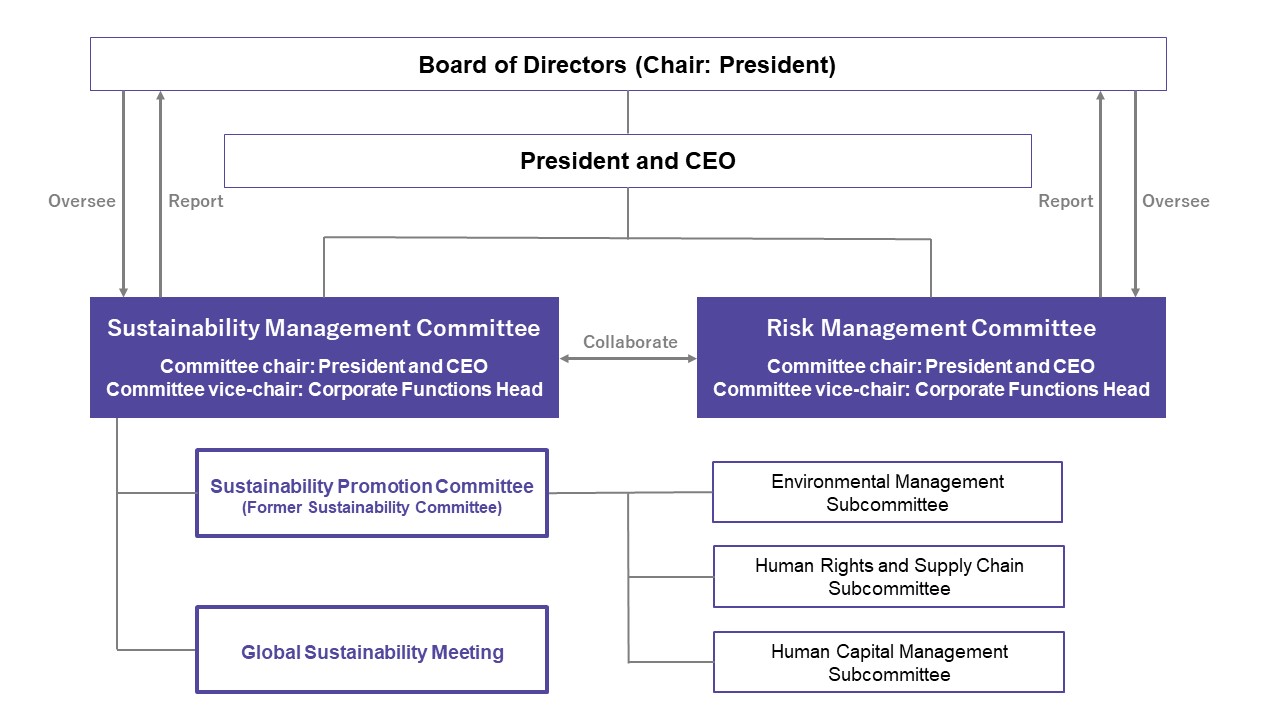
Major Initiatives
Initiatives toward human rights due diligence
Daifuku has been working on building and operating a system to identify, analyze, and evaluate negative impacts on human rights related to our overall business activities, including our supply chain, and to correct, mitigate, and prevent such impacts, as well as risk assessment for the ongoing implementation of human rights due diligence. As part of these efforts, we conducted a human rights risk assessment (potential risk assessment) to evaluate the negative impact on human rights and identify human rights issues. From these results, we identified domestic foreign workers in the supply chain, including contractors, and workers at raw material suppliers as high-priority human rights issues to be addressed by the Group.
The risk assessment was conducted with the advice of external experts (the NPO Caux Round Table (CRT) Japan) to evaluate potential risks as human rights due diligence in line with the UN Guiding Principles (UNGPs) on Business and Human Rights. Specifically, we identified priority issues by uncovering the relevant value chains and impacted rights holders based on internal questionnaires, surveyed high-risk countries within the Group’s business activities using the results of the human rights risk assessment conducted by CRT Japan, and conducted internal workshops and interviews with subsidiaries in high-risk areas. Additionally, we are conducting interviews within our supply chain, and we will take appropriate and effective remedial measures if and when negative human rights impacts or facilitating factors come to light.
Global expansion
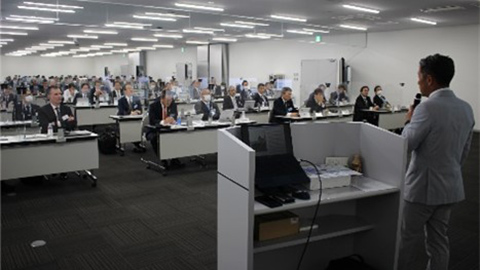
Beginning in fiscal 2023, we have been gradually expanding human rights due diligence to our global affiliates. In addition to inviting an external expert to give a lecture on understanding business and human rights to managers of our global affiliates and Daifuku Japan executives, we also identified potential risks by distributing a risk assessment questionnaire that allowed us to ascertain the status of initiatives for respecting human rights at each of our global affiliates.
To enhance the effectiveness of these activities, we participate in various initiatives, such as the Human Rights Due Diligence (HRDD) Subcommittee organized by the Global Compact Network Japan (GCNJ) and the Stakeholder Engagement Programme organized by the NPO Caux Round Table (CRT) Japan, to deepen our understanding of industry-specific human rights issues and apply this understanding to our efforts to respect human rights.
2024 Human Rights Due Diligence Workshop (Stakeholder Engagement Programme)
Human rights due diligence process
In accordance with the United Nations Guiding Principles on Business and Human Rights, we are conducting human rights due diligence by following the process outlined in the chart below.
Please enlarge the screen to view
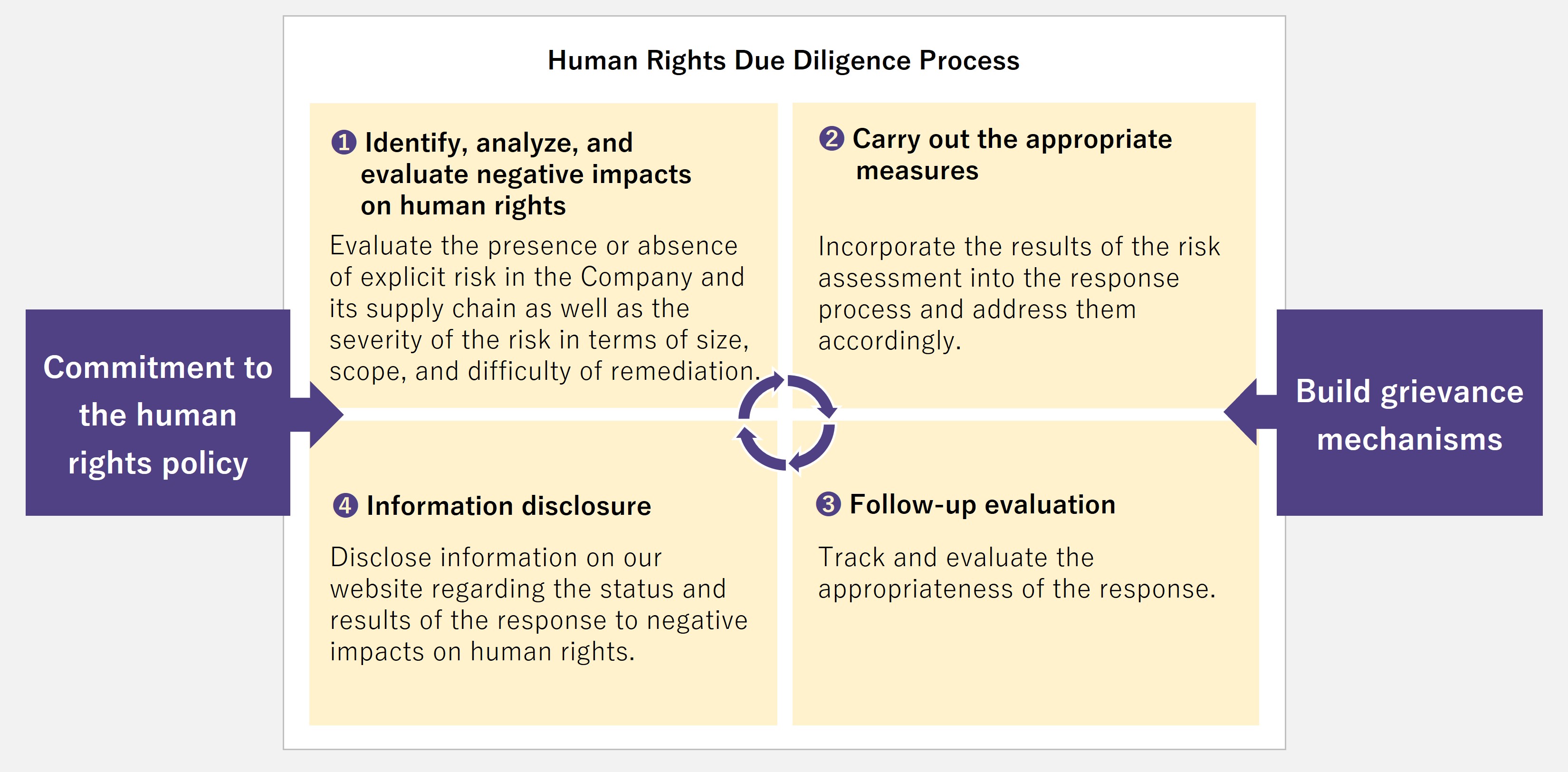
Results of identifying, analyzing, and evaluating negative impacts on human rights
The Group considers domestic foreign workers in the supply chain, including contractors, a high-priority human rights issue. In order to identify any negative impacts on their human rights, we are conducting on-site interviews with employees of our business partners and global subsidiaries (Thailand, Taiwan) as well as foreign workers at those business partners. Additionally, in order to ascertain the employment status of foreign workers (especially technical intern trainees) in the supply chain, we conducted a survey of employment conditions and confirmed that a total of approximately 1,200 technical intern trainees (of nationalities including Vietnam, the Philippines, Myanmar, Indonesia, Thailand, Cambodia, China, and India) are currently enrolled at 96 business partners. Based on the information we obtained from the results of this survey, we conducted potential risk analyses before deciding on which locations to visit. These analyses take into consideration the number of employees, the amount of business with Daifuku, an SAQ evaluation in regards to the Daifuku Sustainable Procurement Guidelines, and other factors.
Summary of the human rights impact assessment
In cooperation with CRT Japan to ensure objectivity and neutrality, we conducted on-site interviews with foreign workers and their managers employed at our business partners. These interviews were based on the Dhaka Principles for Migration with Dignity and focused on topics such as appropriate working hours, fair wages, employment contracts, workplace health and safety, freedom of association and the right to collective bargaining, and communication.
Results of impact assessments held in Japan
| Date of assessment | Company name | Interviewees (nationality) |
Residency status |
|---|---|---|---|
| February 2023 | Hokko Co., Ltd. | 4 foreign workers (Vietnam, China) |
Specified skilled workers, technical intern trainees |
| Tamura Co., Ltd. | 4 foreign workers (Vietnam) |
Specified skilled workers, technical intern trainees | |
| November 2023 | Toho Technology Inc. | 5 foreign workers (Indonesia) |
Technical intern trainees |
| December 2023 | Megumi Kogyo Co., Ltd. (Megumi Group) | 4 foreign workers (Thailand) |
Technical intern trainees |
| July 2024 | Masui Co., Ltd. | 5 foreign workers (Vietnam) |
Technical intern trainees |
| Human Heart Co., Ltd. | 3 foreign workers Vietnam |
Technical intern trainees | |
| Nagomi Inc. | 2 foreign workers (Vietnam) |
Technical intern trainees |
Photos provided by third party organizations
Results of impact assessments held outside of Japan
| Date of assessment | Company name | Interviewees (nationality) |
|---|---|---|
| February 2024 | Thailand subsidiary: Daifuku (Thailand) Limited | 20 employees of Daifuku subsidiary (Thailand, Myanmar) |
| Business partner: Manus Prosystem Logistic Co., Ltd. | 4 employees of business partner (Myanmar) |
|
| March 2024 | Taiwan subsidiary: Taiwan Daifuku Co., Ltd. | 19 employees of Daifuku subsidiary (Taiwan) |
| Business partner: Chih Kang Material Company Ltd. | 20 employees of business partner (Vietnam, Philippines) |
Assessment results
- Neither long working hours nor forced overtime were observed at the Daifuku subsidiaries or their business partners. At the subsidiaries, when shifts in addition to regular working hours are required in order to accommodate customers, it is advisable to ensure that employees are not overworked, the treatment for overtime and night work is appropriate, and that appropriate countermeasures against overwork are taken.
- It was confirmed that the companies provide safety training for employees upon entry into the company and require employees to undergo periodic safety training. No work under hazardous conditions was observed.
- It was confirmed that there are organizations that allow workers to express their opinions to the company through representatives. It is advisable that the purpose of these organizations and specific methods of their utilization be thoroughly communicated throughout each company.
Future actions
Based on the interview assessment results, we will implement measures for improvement beginning with the items of the highest priority in order to prevent and reduce negative impacts on human rights.
Human rights due diligence schedule
- FY2025
-
- Within and outside of Japan: continue overt risk assessments
- Outside of Japan: address human rights issues
- Within Japan: expand the scope of employment status surveys (supply chain visualization) to identify potential human rights risks
Respecting human rights in the supply chain
We have established the Sustainable Procurement Guidelines, which incorporate not only safety, quality, cost, and delivery time, but also compliance, human rights, and other factors, and we cooperate with our suppliers to promote sustainability initiatives throughout the entire supply chain. We will continue to identify and assess adverse human rights impacts related to our overall business activities, including our supply chain, and promote human rights due diligence to correct, mitigate, and prevent such impacts, with a commitment to continuously implement and improve these efforts.
Personnel Consultation Office
We have established a confidentiality-guaranteed Personnel Consultation Office to handle consultation regarding personnel systems, evaluations and benefits, workplace environment, working hours, harassment, health management, etc. Our consultants receive regular training from externally trained instructors to ensure that they can appropriately respond to a wide range of consultations, and they work to improve their listening skills through group work and role-playing based on specific cases.
Human rights education and awareness
In October 2021, the Daifuku Group Human Rights Policy was formulated at the same time as the revision of our management philosophy, and a briefing session was held for Group companies both within and outside Japan. During the meeting, the CEO spoke about the Human Rights Policy, and we publicized our Group’s commitment to respecting the human rights of all of our stakeholders who may be impacted by the Group’s business operations.
Lectures and workshops on human rights are given during training programs for new hires, mid-career hires, mid-level employees, and senior staff. Moreover, we hold seminars with experts and publish the video recordings on our internal network to facilitate employees’ understanding. To date, in addition to conducting harassment prevention seminars based on the results of stress checks, we have also conducted an e-learning program in six languages (Japanese, English, Simplified and Traditional Chinese, Korean, and Thai) for all employees of the Daifuku Group both within and outside Japan to raise employees’ awareness of human rights.
Preventing child labor and forced labor
We will not permit child labor or forced labor of any kind. To prevent child labor and forced labor, we will comply with the laws and regulations of each country and region at each of our business locations, and we will conduct regular monitoring through human rights due diligence. When hiring personnel, we verify their age through application documents (including residence cards for foreign workers), and we disclose working conditions and confirm their willingness to work in a language they can understand before they join the company. Furthermore, we have established a whistleblowing system that allows employees to report any violation of laws and regulations, including human rights violations, or any potential violation of internal regulations.
Compliance with the Modern Slavery Act
Daifuku Logan Ltd., a UK affiliate, has issued an Anti-Slavery Statement in response to the British law Modern Slavery Act 2015.

